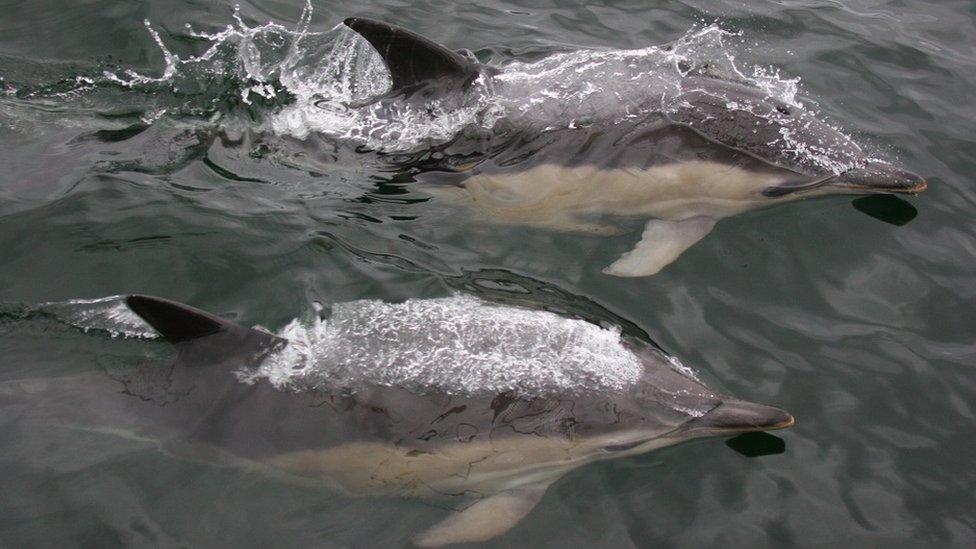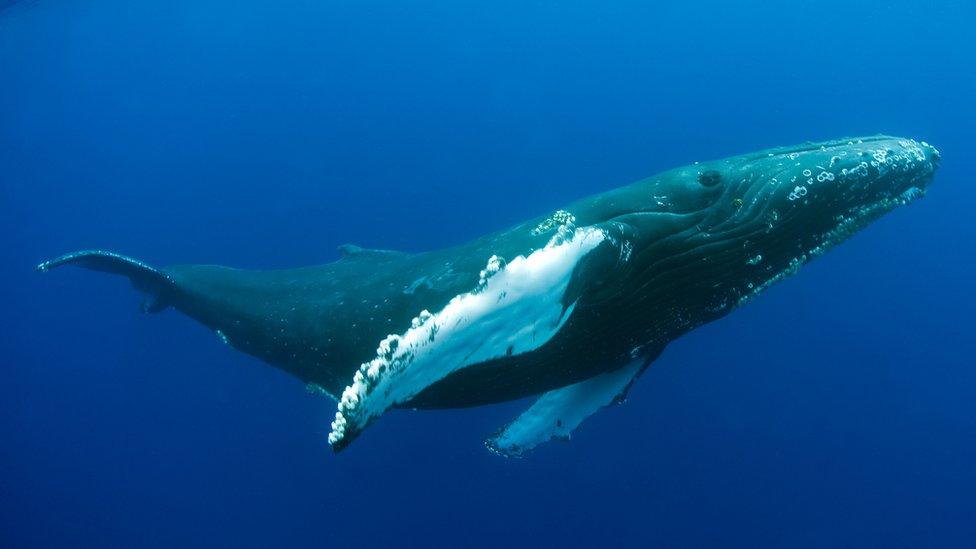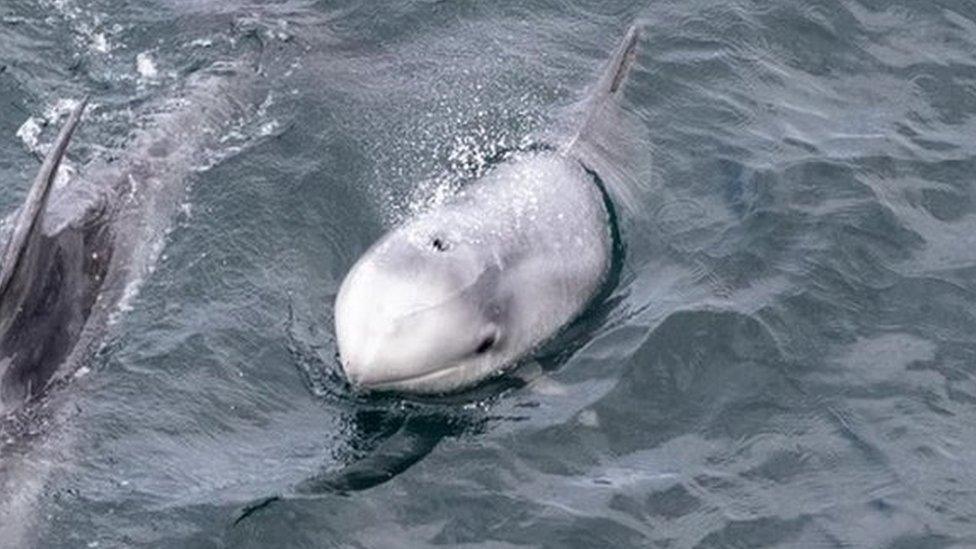Year-long study records whale songs off Scotland
- Published

Dolphins were among the marine animals recorded in the study
The sounds of whales and dolphins have been recorded off Scotland's west coast over the course of a year for the first time, according to scientists.
Underwater microphones were deployed off the Hebrides and an area of ocean known as the continental shelf.
Researchers said a vast soundscape of whale songs as well as echolocation clicks and whistles were detected.
The study will help guide conservation work and measures designed to protect wildlife around marine energy schemes.
More than 12 terrabytes of data were gathered from 10 microphones lowered to depths of between 60-175m (197-574ft) to cover an area stretching from the isles of Lewis and Barra to the west of St Kilda.
Sounds from dolphins and fin, minke, humpback and sei whales were among those recorded.
The research led by Oban-based Scottish Association for Marine Science (Sams) has been published in the journal Frontiers in Remote Sensing, external.
University of Plymouth scientists were also involved.

The array of underwater microphones recorded whale songs
The sounds of human activities, such as shipping, were also detected.
Warships' military sonar and live firing during Nato exercise Joint Warrior off Scotland's west coast was also recorded.
The scientists' array of microphones also detected the sounds of wind, rain and tides.
Sams' marine animal ecologist Dr Denise Risch said the study would also help in understanding the effects of climate change.
She said: "As the ocean warms, more species that are adapted to warmer water come north. For example, in recent years we've seen more common dolphins follow their prey as they migrate northwards.
"It will only take a couple more decades for there to be a different species composition in Scottish waters."
Dr Risch added: "This kind of data is valuable in explaining how a warming ocean is affecting the movement of cetaceans and their prey, but it is also the best way to find out whether certain species are recovering from the devastating effects of whaling and how we can protect them from current threats, such as entanglement in fishing gear and ocean noise."
- Published30 August 2022

- Published1 June 2022